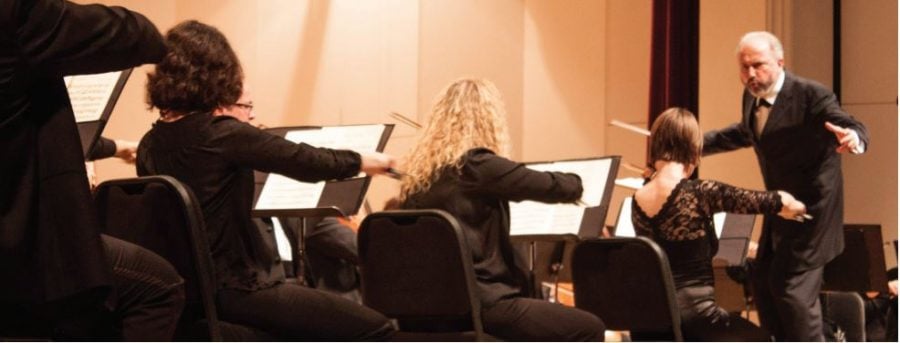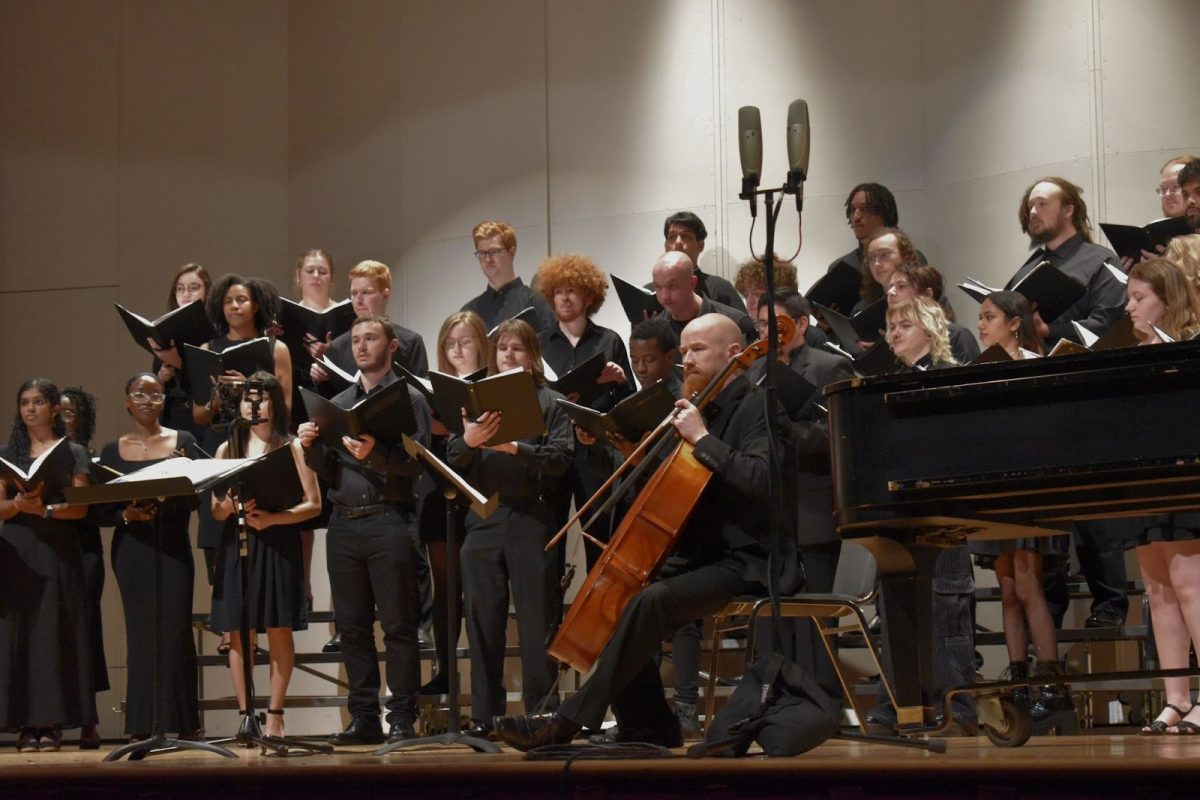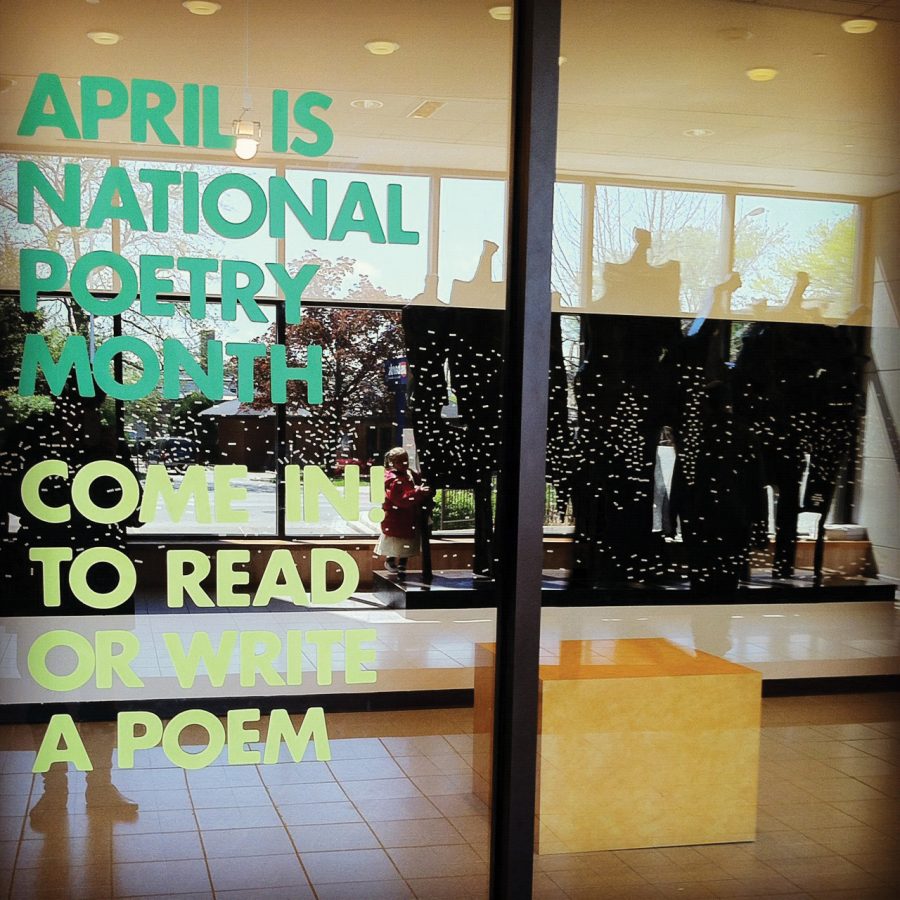On a weekday night, Dana is usually only occupied by a few late-rehearsing students. Around Halloween, they are sometimes joined by a few enterprising ghost hunters.
But on Nov. 3 and 5, the hall was filled with Greensboro’s classical music fans for a night of Mozart from the Greensboro Symphony Orchestra.
“The acoustics in Dana are probably the best in town,” said Timothy Lindeman, professor of music. “The symphony likes to play here because it’s a great sound.”
Since the demolition of the War Memorial Auditorium in 2014, the GSO has been without a home, playing mostly at Guilford College and University of North Carolina at Greensboro. This year, they will be playing 10 concerts in Dana.
“This is a nice hall,” said guest artist and principle flutist Debra Reuter-Pivetta. “You feel like you get feedback.”
The concert program included three pieces. The first half of the show was the overture to Mozart’s opera, “The Magic Flute” and his “Flute Concerto No. 1 in G Major,” for which Reuter-Pivetta played the solo. It ended with an encore from Reuter-Pivetta of a Venezuelan dance called “Heebie-Jeebies,” which drew a standing ovation from the crowd.
“Coming out of Halloween, I thought ‘Heebie-Jeebies’ would be good,” said Reuter-Pivetta.
The second half of the show was one symphony, Mozart’s “Number 39.”
“He wrote 39, 40 and 42, those are his last three symphonies before he died,” said Lindeman. “They were not commissioned, and they were not written for any specific purpose, so we can only imagine that Mozart had an artistic need to write them.”
The concert was well attended, filling perhaps 3/4 of the auditorium, and the audience seemed enthusiastic.
“There’s a great ensemble,” said Joshua Waldron, an audience member who teaches piano in Winston-Salem. “It sounds crisp. The balance between the different instruments is nice.”
Waldron came to support his girlfriend in her first show as part of the GSO, but he enjoyed the music, too.
“I love how everything in Mozart reminds me of opera in a way,” said Waldron. “There’s sort of this pageantry of characters.”
For the most part, however, the audience was not Guilfordian students — most of the attenders were middle-aged or older. A few students attended but not many.
For those who do want to attend the on-campus concerts, there are plenty of opportunities.
“We have a great relationship with the Greensboro symphony, and I’ve gotten free tickets for my music students for performances,” said Lindeman.
“Student tickets … are five dollars, really inexpensive.” Students can also volunteer to be ushers and see the show for free.
But while students may be able to attend the concerts, many of them do not.
Despite this, Dmitry Sitkovetsky, the GSO music director and conductor of the show, believes that these classical concerts can be for everyone.
“Music has a unique ability to gather people regardless of age, regardless of sex, regardless of color of skin … good people, people who are not so good,” said Sitkovetsky.
“(Live performance is) the only thing that’s going to keep us human.”
For students unsure of attending a classical concert, Sitovetsky recommends just trying one.
“One should not be intimidated by the whole stigma around classical music,” he said. “It’s like great art … you don’t need to know anything (to enjoy it).”












